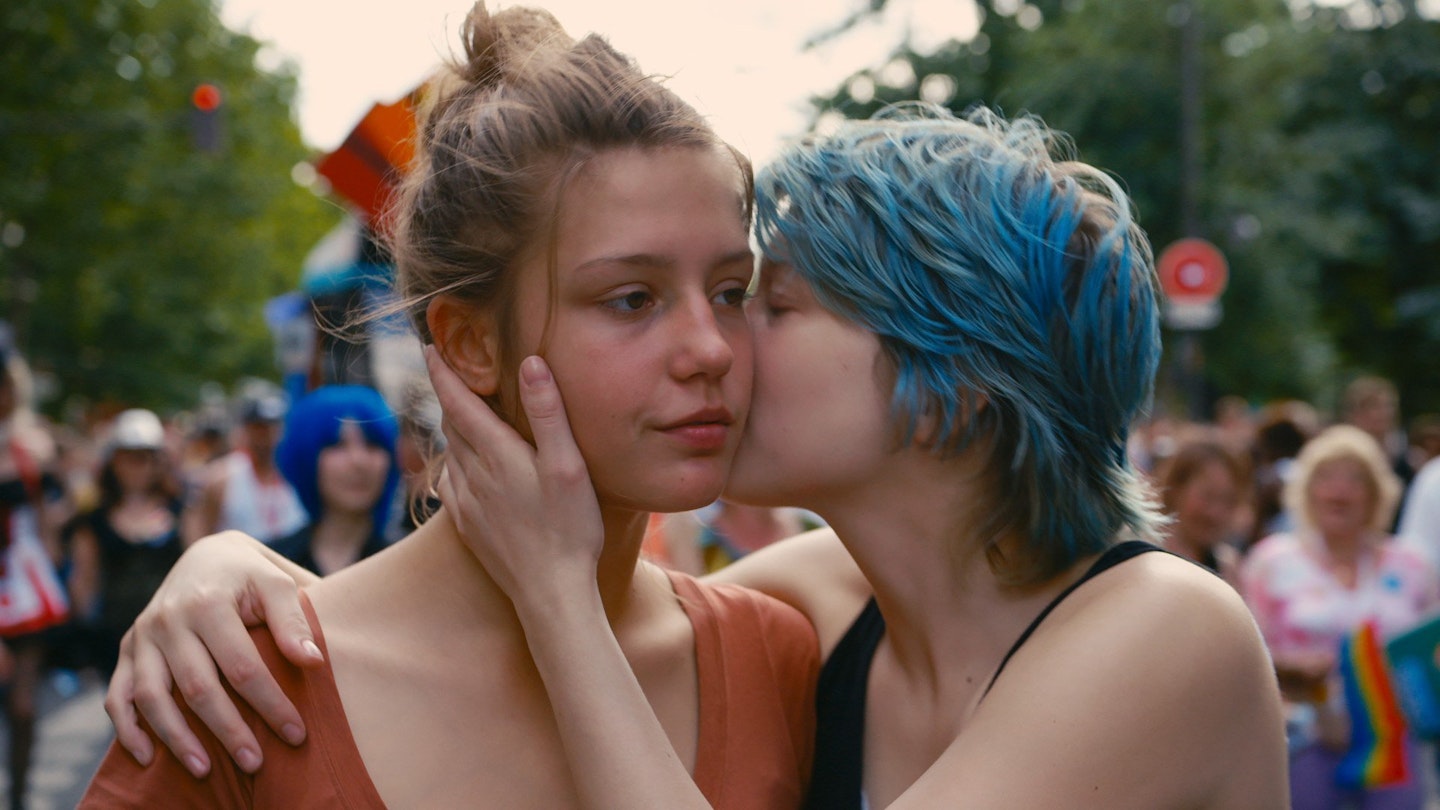"How do you understand that the heart is missing something?” is a question posed at the start of Abdellatif Kechiche’s Palme D’Or winner. The answer is as emotionally shattering as movies get, the ecstacy and agony of first love, real love, in all its magnificent simplicity and complexity. Also, given it’s based on Julie Maroh’s Gallic graphic novel, it has a surprise shout at being the best comic-book movie of the year.
The French title is La Vie d’Adele — Chapitres 1 & 2, and Kechiche delivers one of cinema’s most realistic coming-of-age stories. The first chapter details Lille schoolgirl Adèle’s (Adèle Exarchopoulos) journey from English lessons, family spaghetti dinners and fumbled sexual experiences to getting together with blue-haired, happily out bohemian Emma (Léa Seydoux). Perfectly capturing the rush of falling for someone, it culminates in the (now notorious) lengthy graphic bedroom scene that melts the barriers between love and sex. It is untethered, unembarrassed and joyful.
It’s not just the sex scenes that feel extended. Kechiche lets every scene play well beyond ‘normal’ length, giving his characters room to live and breathe. If chapter one is about what brings the couple together, chapter two is what pulls them apart. Interestingly it is not sexual politics that breaks them up but different divisions (illustrated
in contrasting family dinners), and the film becomes a heartrending look at the struggle to overcome differences and the need to find meaning outside a relationship.
Seydoux — you’ll remember her from the beginning of Inglourious Basterds — is terrific, daring, free-spirited and open, but this is Exarchopoulos’ movie. She gives a tour de force performance without it ever feeling like it is a tour de force performance, believably and movingly etching a journey into maturity. Around the two-hour mark, the pair separate and Adèle, now a classroom assistant, battling to teach her kindergarten kids while her post-Emma world is collapsing around her is the most heroic act in a 2013 film. How this all resolves itself will leave you in bits.
